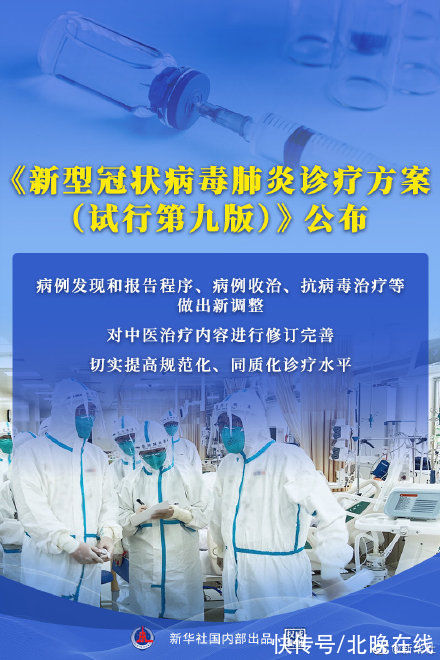Yesterday, the National Health and Health Commission announced the “New Coronary Virus Pneumonia Diagnosis and Treatment Plan (Trial Version 9)”. According to the characteristics of patients with Omicron mutants mainly asymptomatic infections and mild cases, it stipulates that mild cases should be treated Implement centralized isolation management.

The new version of the diagnosis and treatment plan optimizes the case discovery and reporting procedures. On the basis of nucleic acid detection, antigen detection is added as a supplement to further improve the ability of early detection of cases . At the same time, the efficiency of diagnosing or excluding suspected cases is improved, and those with positive antigen test results are required to undergo nucleic acid testing immediately or closed-loop transfer to a qualified higher-level medical institution for nucleic acid testing. Those with a positive nucleic acid test result will be quarantined in a centralized manner or sent to a designated hospital for treatment, and will be reported directly online in accordance with regulations.
The new version of the diagnosis and treatment plan further improves the measures for case classification and admission, and implements centralized isolation management for mild cases. During the isolation management period, symptomatic treatment and disease monitoring should be done well. If the condition worsens, it should be transferred to a designated hospital for treatment; , Severe, critical cases and cases with severe high-risk factors should be centrally treated in designated hospitals. Among them, severe and critical cases should be admitted to ICU for treatment as soon as possible, and patients with high-risk factors and prone to severe disease should also be admitted to ICU for treatment. Two specific anti-new coronavirus drugs, PF-07321332/ritonavir tablet (Paxlovid) and domestic monoclonal antibody (ambavirumab/romisevirumab injection) approved by the State Food and Drug Administration were written The new version of the diagnosis and treatment plan. At the same time, the plan also strengthens the application of traditional Chinese medicine non-drug therapy, increases the content of acupuncture and moxibustion, and increases the content of children’s traditional Chinese medicine treatment in combination with the characteristics of children.
Senior care institutions suspend family visits
In response to the current situation of Beijing’s epidemic prevention and control, the city’s elderly care service institutions have implemented first-level prevention and control measures in Beijing and implemented fully closed management. The Civil Affairs Bureau issued a notice requesting to suspend the admission visit activities of the family members and children of the elderly in the hospital, and to suspend the service activities for the admission of foreign social personnel.
The Civil Affairs Bureau notified that from 8:00 am on March 13, the city’s elderly care service institutions will temporarily implement first-level prevention and control measures and implement fully closed management for one week. After the expiration of the period, adjustments will be made according to the requirements of the Ministry of Civil Affairs and the national and local epidemic prevention and control situation. The notice emphasizes that strict protection measures will be implemented for the elderly in the hospital during the closure period.
According to the notice, except for the elderly who are living in the hospital temporarily going out for medical treatment, the elderly care service institutions will no longer accept the elderly who apply for admission to the hospital, and the elderly in the hospital will not return to the institution for the time being. . Suspend the admission visit activities of the family members and children of the elderly in the hospital, and suspend the service activities for the admission of foreign social personnel.
The notice requires senior care institutions to set up a material handover area outside the door, and strictly disinfect the hospital materials. Elderly service institutions should reasonably set up separate spaces, mainly for the elderly who go out to see a doctor and return to the hospital during the closed period, and avoid close contact with other elderly people in the hospital and staff without preventive measures in the environment where they must take off their masks when eating or sleeping. .
The notice makes it clear that during the period of closed management, the necessary medical needs of the elderly should be guaranteed, and the antigen and nucleic acid testing of elderly care institutions should be strengthened.
Source: Beijing Evening News reporter Liu Suya Wang Qipeng
Process editor: u099